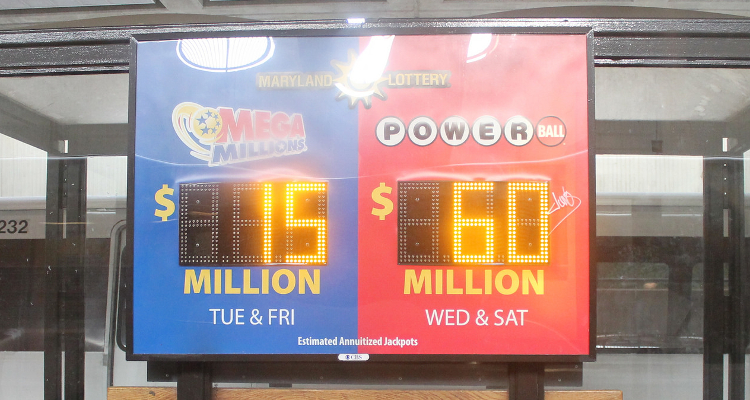Two firms that lost out on the contract to provide the computer network behind the Maryland Lottery could soon lodge formal complaints amid claims that the state agency behind the bidding process chose the highest bidder.
According to a report from The Baltimore Sun newspaper, last month saw the Maryland Lottery And Gaming Control Agency award Scientific Games Corporation with the eight-year contract to supply the Maryland Lottery with the machines retailers use to sell lottery tickets along with the associated electronic sales network. The Las Vegas-based firm entered a “not to exceed” bid of $263 million, which was roughly $25 million more than the tender from International Game Technology and exceeded Gaming Innovations’ offer by approximately $50 million.
The newspaper reported that “not to exceed” contracts set a ceiling for spending although the total amount could prove to be less while the process saw the Maryland Lottery And Gaming Control Agency give Scientific Games Corporation the highest technical score, which reflects its judgment of a bidder’s ability to do the job, followed by International Game Technology ahead of Gaming Innovations.
Both losing bidders are now charging that the Maryland Lottery And Gaming Control Agency made “arbitrary and capricious” choices in evaluating the bids in a way that favored the incumbent Scientific Games Corporation.
The Baltimore Sun reported that local firm Gaming Innovations declared that the state lottery agency had shown “undeniable bias” in awarding the contract while refusing to give the joint venture credit for the experience of its two members, which together run the DC Lottery.
For its part, London-based International Game Technology reportedly accused the Maryland Lottery And Gaming Control Agency of improperly trying to run up the contract’s long-term value in an attempt to minimize future oversight by the Board Of Public Works. It stated that the agency did this by requiring bidders to include in their proposals the cost of providing services that aren’t currently legal in Maryland such as the online sale of lottery tickets.
International Game Technology alleges that the Maryland Lottery And Gaming Control Agency told it that any bid should include the provision of Internet lottery sales because the agency wanted to avoid further “burdensome”” reviews by the Board Of Public Works if lawmakers were to approve such an expansion of gambling in Maryland.
Although the newspaper reported that bid protests to a state agency are almost always denied, they are a necessary first step before a challenger can bring a case before the Maryland State Board Of Contract Appeals, which is an independent agency that holds the authority to overturn procurement decisions. Such a move would more than likely delay for many months the planned implementation of the new contract in June of 2017.
A spokeswoman for the Maryland Lottery And Gaming Control Agency defended the bidding process and told the newspaper that it had been “conducted with the highest standards of independence, integrity and adherence to the law”. Doug Mayer, a spokesman for Maryland Governor Larry Hogan, declined to comment specifically on the matter but explained that the Republican would investigate the contract if it came before the Board Of Public Works.
UPDATE: Scientific Games has provided a rebuttal to some elements of this story. Official statement follows.
The charge reported in the media, attributed to London-based IGT Global Solutions, is inaccurate. Scientific Games did not include Internet sales in its Maryland Lottery base proposal, and has no plans to implement Internet sales. As is typical in the industry, Maryland’s RFP requested all suppliers include options for future technologies, including Internet services, should the state choose to use those in the future. We complied with the RFP requirements to present future technologies as options only.
Scientific Games was awarded the highest technical score in the procurement process. Our high score reflects the value of Scientific Games’ investment in new products and services to increase retail sales and profits.
We’re honored to continue our successful, long-standing relationship with the Maryland Lottery, and look forward to building upon the momentum established in FY2016, with Maryland Lottery generating an all-time record of $1.908 billion in sales and $570 million for its retailers and good cause beneficiaries.


